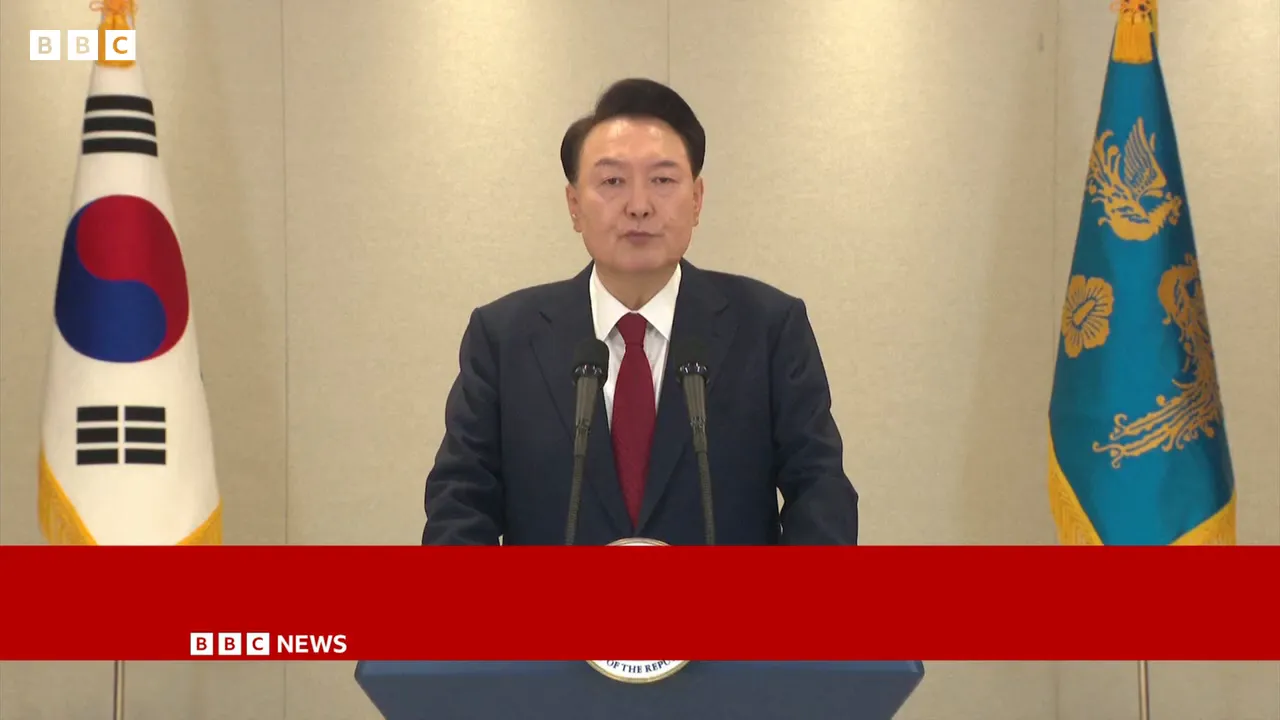
Table of Contents
🚨 The Declaration of Martial Law
In a shocking turn of events, South Korean President Yoon Suk-yeol recently defended his controversial decision to declare martial law. This declaration, the first of its kind since the country’s transition to democracy in 1987, has ignited widespread protests and raised serious questions about the future of South Korea’s democratic institutions.
💬 Presidential Address: A Defiant Stance
In a televised address, President Yoon asserted that he would “fight to the end” against what he described as “criminal groups” and “forces” that have led to governmental paralysis. He claimed these elements threaten the future of the Republic of Korea, stating, “We must prevent the forces… from taking over the state administration.” His remarks were met with mixed reactions from the public.
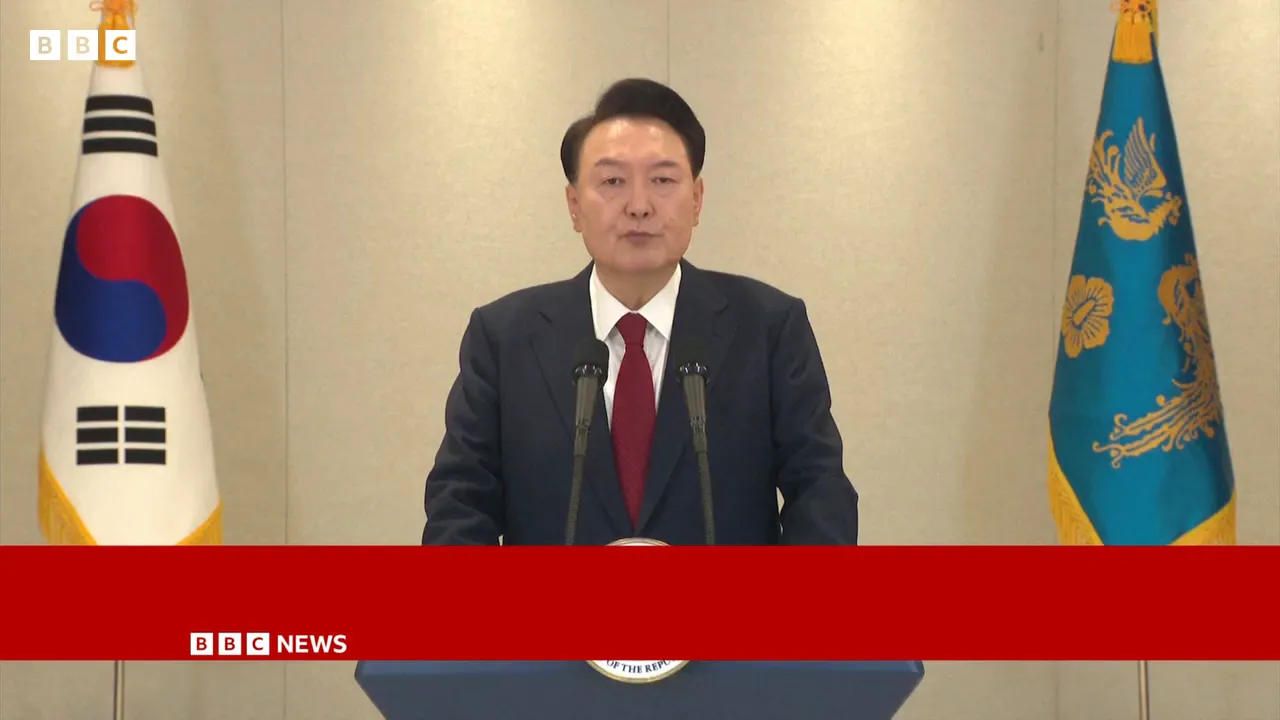
📢 Public Reactions: A Divided Opinion
The public response to Yoon’s declaration has been polarizing. Many citizens expressed outrage, viewing the move as a direct threat to democracy. One citizen remarked, “The president has already taken actions against democracy… this is unacceptable and it’s close to a dictatorship.” Meanwhile, supporters of Yoon argued that his actions were necessary to combat what they perceive as an obstructionist opposition party.
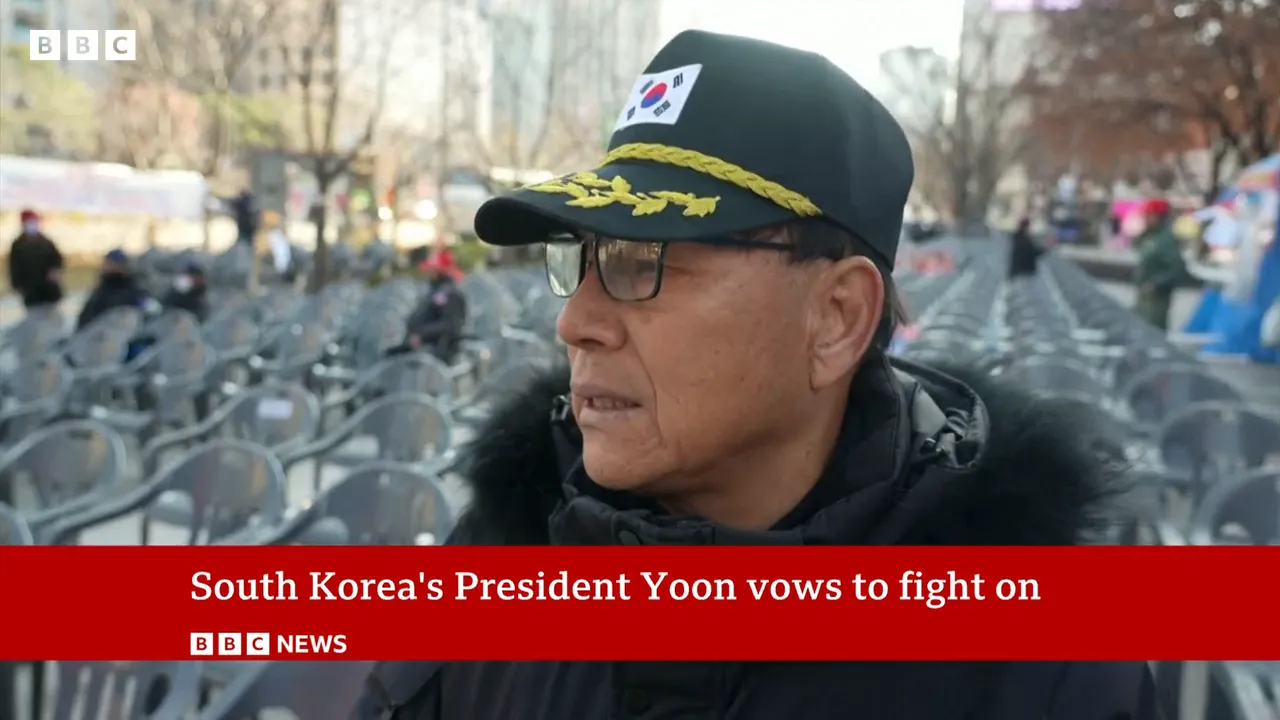
🏛️ Legislative Pushback
In a swift response to the martial law declaration, the National Assembly convened an emergency session. All 190 members present voted unanimously to reject the decree, asserting that it violated constitutional principles. National Assembly Chairman Woo Won-sik declared the martial law “invalid,” emphasizing that the assembly would defend democracy.
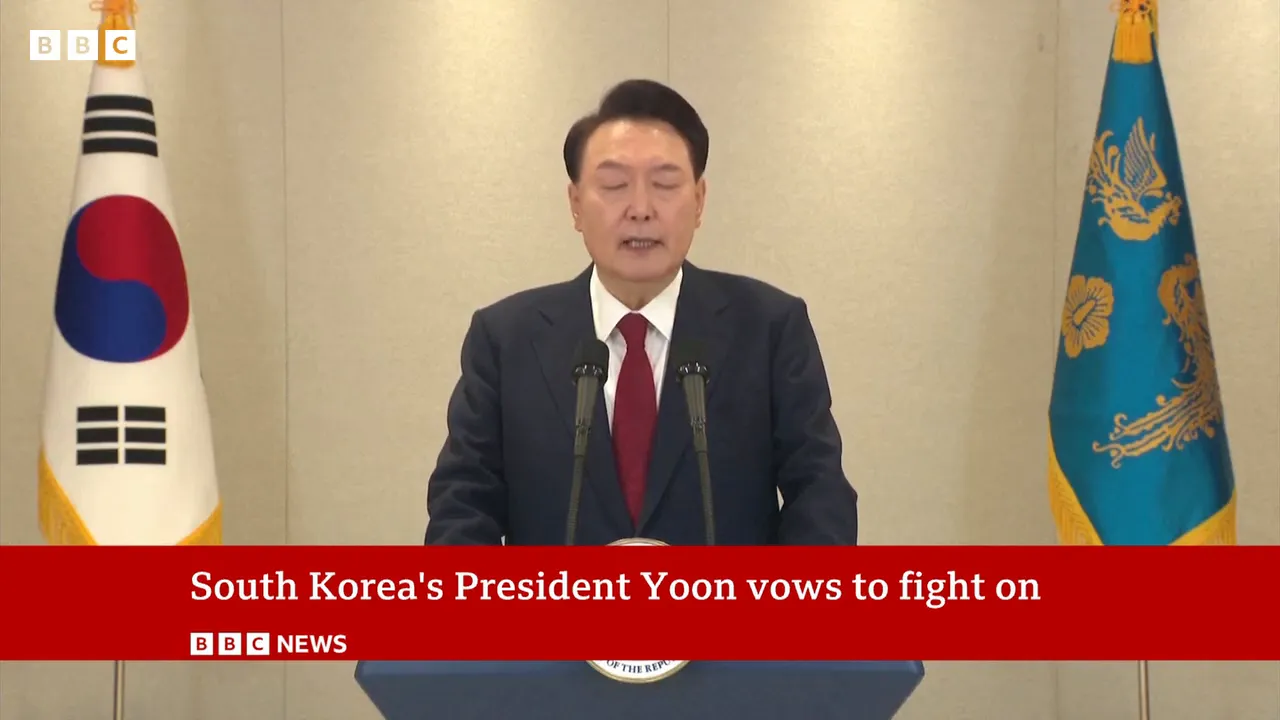
⚖️ The President’s Political Crisis
Yoon’s administration is under immense pressure, with his approval ratings plummeting to the twenties. His attempts to impose martial law reflect a desperate overreach to maintain power amidst growing opposition, not only from the Democratic Party but also from within his own People Power Party. This internal strife has led to calls for his impeachment.
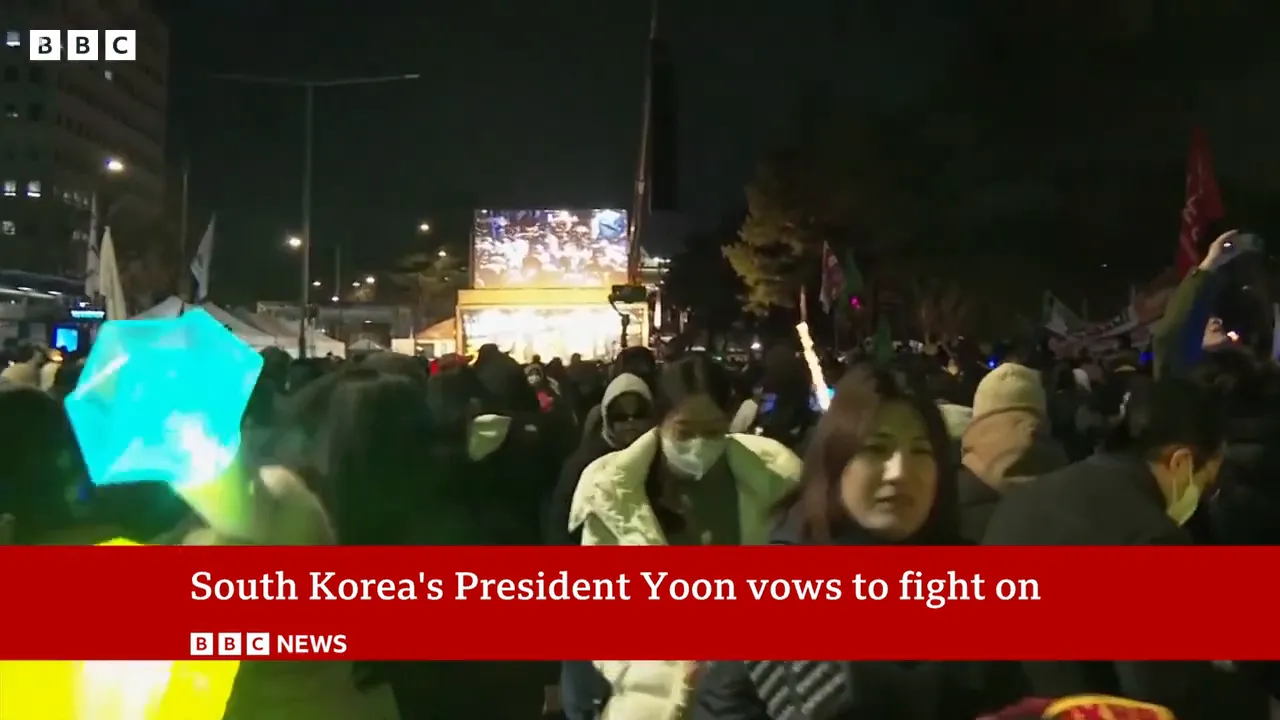
🕊️ Historical Parallels
The current political crisis draws stark parallels to South Korea’s past under military dictatorship. During the regimes of Park Chung-hee and Chun Doo-hwan, martial law was similarly used to suppress civil liberties. However, the resilience of South Korean democracy, demonstrated through civic engagement and mass protests, suggests that citizens will not accept a return to authoritarianism.
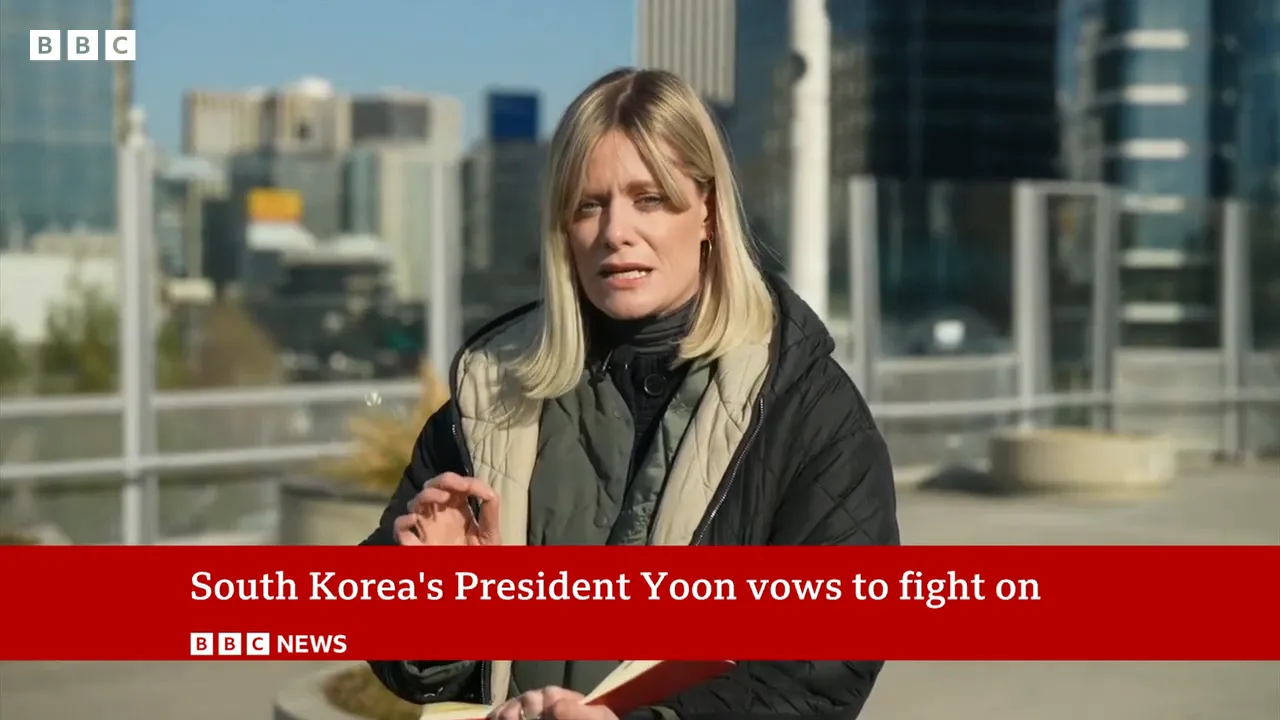
🔍 The Road Ahead: Implications for Democracy
The swift rejection of Yoon’s martial law declaration may ultimately strengthen South Korea’s democratic institutions. This incident reaffirms civilian control and illustrates the importance of active civic engagement in protecting democracy. However, the coming days will be critical in determining how the military leadership and Yoon’s cabinet will respond to the National Assembly’s decision.
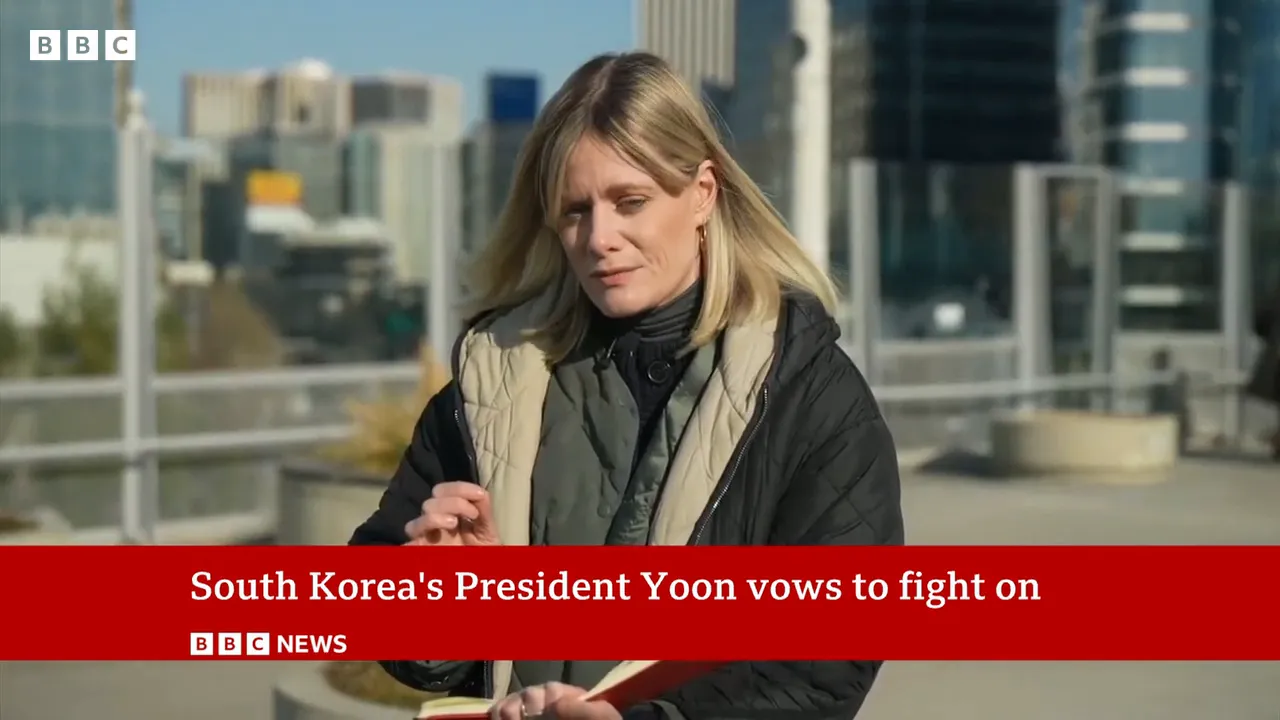
🌍 International Reactions and Concerns
Internationally, the martial law declaration has raised alarms about the stability of democracy in South Korea. Observers are concerned that Yoon’s actions could undermine the country’s reputation as a liberal democracy and weaken its alliances, particularly with the United States and Japan. The implications of this political turmoil extend beyond domestic borders.
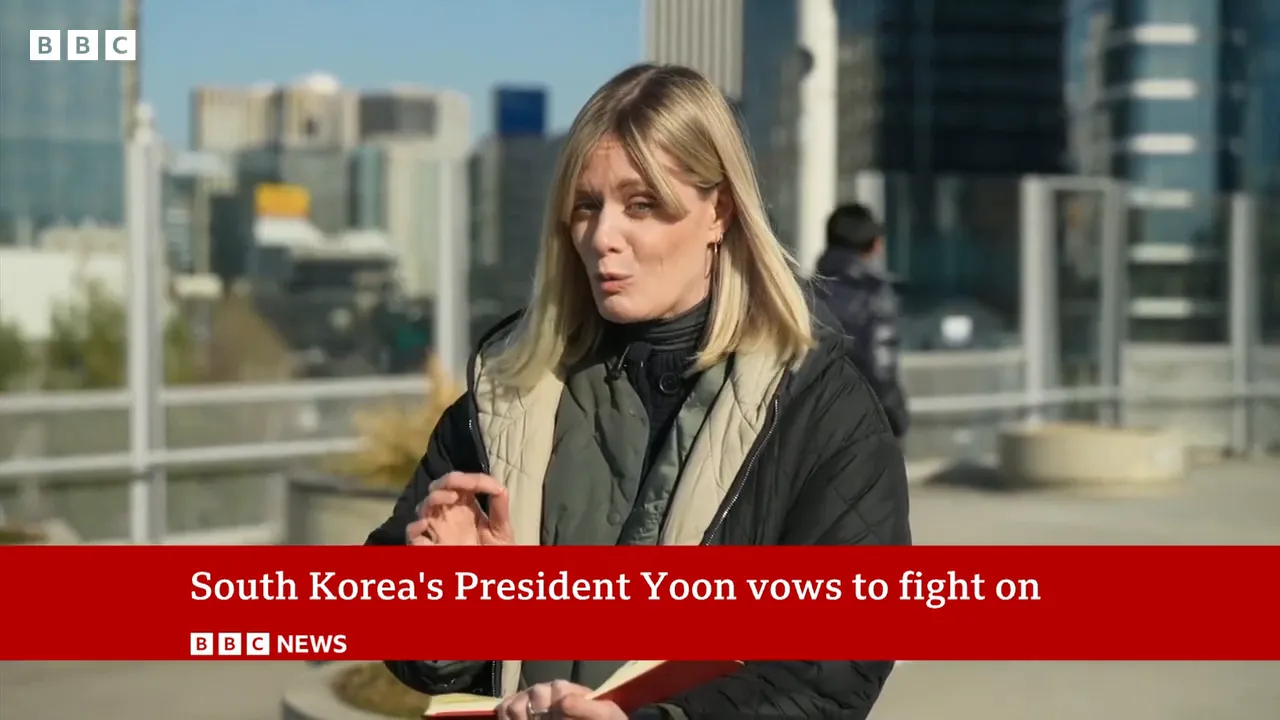
📈 The Future of South Korean Politics
As Yoon faces increasing pressure to resign or be impeached, the future of his presidency hangs in the balance. The political landscape in South Korea is shifting, with potential ramifications for both domestic policy and international relations. The outcome of this crisis will be pivotal in shaping the direction of the country’s democratic governance.
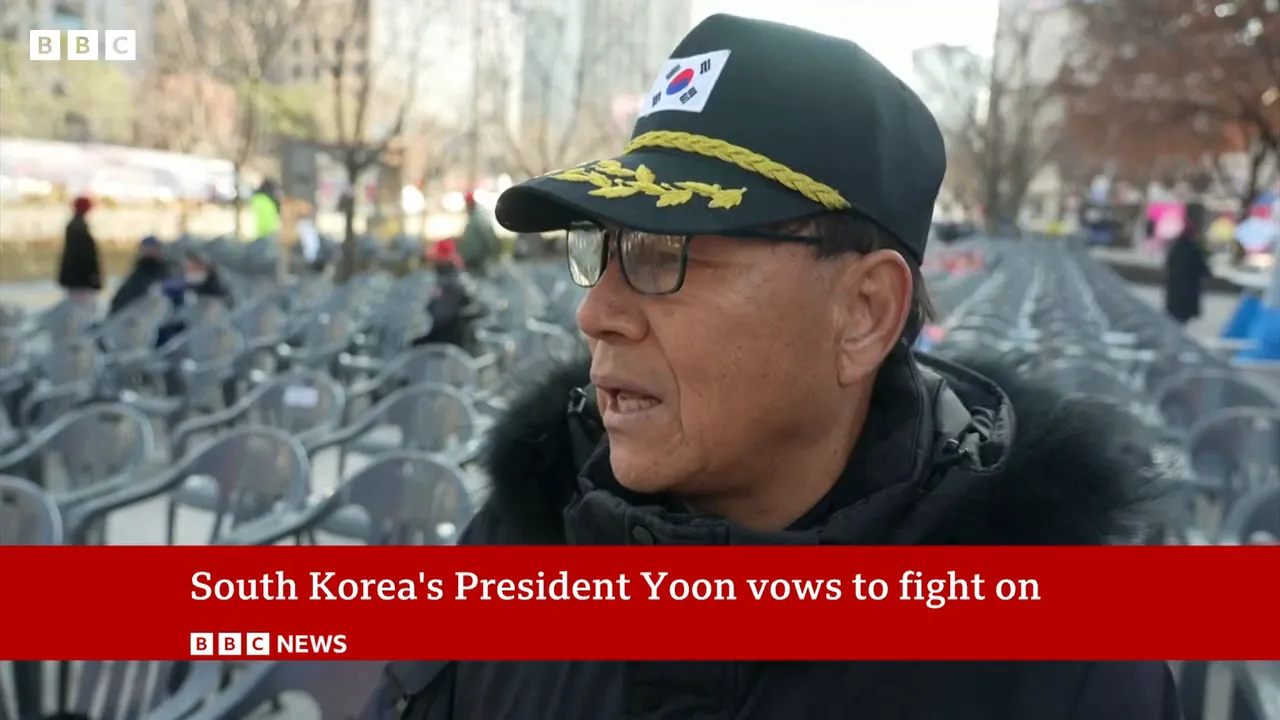
🔗 Conclusion: A Call to Action
The situation in South Korea serves as a reminder of the fragility of democracy and the need for vigilance in protecting civil liberties. As citizens continue to mobilize against perceived threats to their democratic rights, the world watches closely. The resilience of South Korea’s democracy is on display, and the coming days will be crucial for affirming the principles of governance that have been hard-won over the decades.
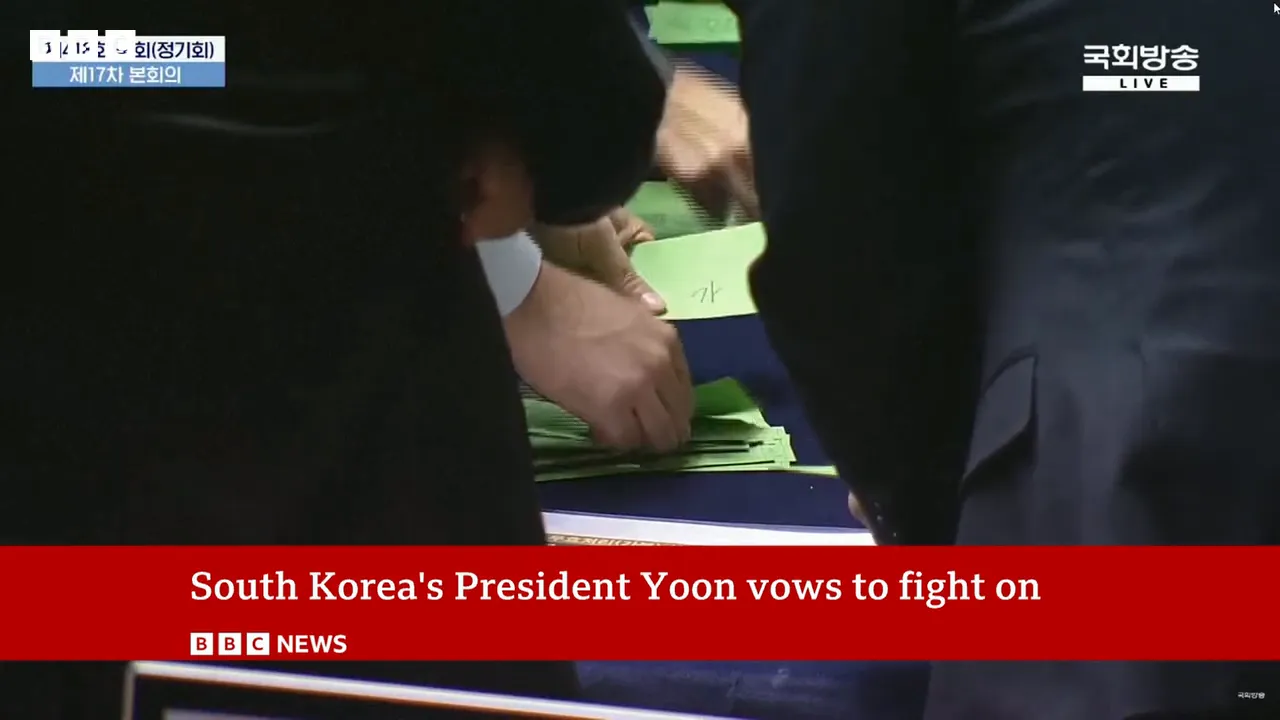
For more updates and in-depth analysis, be sure to follow the BBC News YouTube channel, where you can stay informed on global events and their implications. Content Owner by BBC Newes Published by PHReview .


